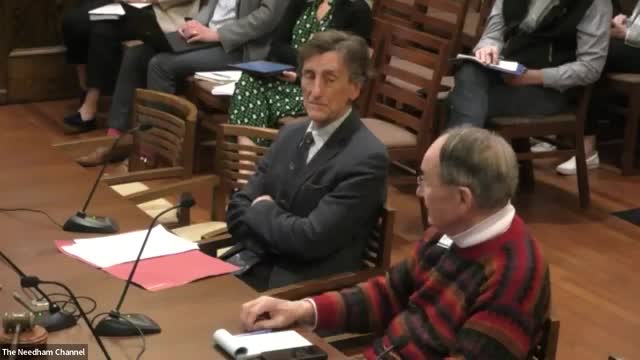Town staff propose energy‑efficiency/clean‑energy revolving fund to capture rebates and tax‑credit proceeds
Get AI-powered insights, summaries, and transcripts
Subscribe
Summary
Building and sustainability staff asked the Select Board to support a warrant article to create an energy‑efficiency and clean‑energy capital program revolving fund that would retain rebates, incentives and direct‑pay tax credits for reinvestment in future municipal energy projects; staff described examples and noted state law (MGL c.44 §53E½) as
Hank Half (director of building design and construction) and Gabby Queenan (sustainability manager) briefed the Select Board on a proposed warrant article to establish an Energy Efficiency and Clean Energy Capital Program Revolving Fund under Massachusetts General Law Chapter 44, Section 53E½.
Staff said the purpose of the revolving fund is to capture state, federal and utility incentives and rebates (including direct pay/elective pay tax credits under recent federal law) that municipalities receive after completing qualifying energy efficiency, electrification and clean‑energy capital projects, and to use those proceeds to seed or match future projects. The article language would also require review by the Attorney General’s office and establish the revolving fund for Fiscal Year 2027 (effective 07/01/2026) with an annual spending limit to be set at Town Meeting.
Staff provided recent examples and numbers from town projects to illustrate the concept: Eversource rebates for Emery Grover (approximately $123,857 total with $92,000 received to date and an additional amount expected after one year), rebates near $21,500 for the Public Safety Complex, and nearly $79,000 for Sunita Williams (all amounts presented as examples from recent completed projects). Staff said those payments have historically been coded to the general fund; a revolving fund would direct those proceeds back toward future energy projects rather than the general fund. Staff also explained the fund would help with cash flow and matching obligations that sometimes precede grant or tax‑credit reimbursements.
Select Board members asked whether the town could opt to earmark rebates to the originating project rather than a townwide revolving fund, and staff said large projects can be handled in the project funding article (for example, the Cogswell or Pollard projects) while the revolving fund is intended to collect smaller, recurring incentives and to accelerate reinvestment. Staff said the proposed spending limit would be set annually by Town Meeting and that the revolving fund may be closed or dissolved by Town Meeting if not needed. The board asked staff to provide historical rebate totals for recent years; staff said they will supply that information for the next meeting.
